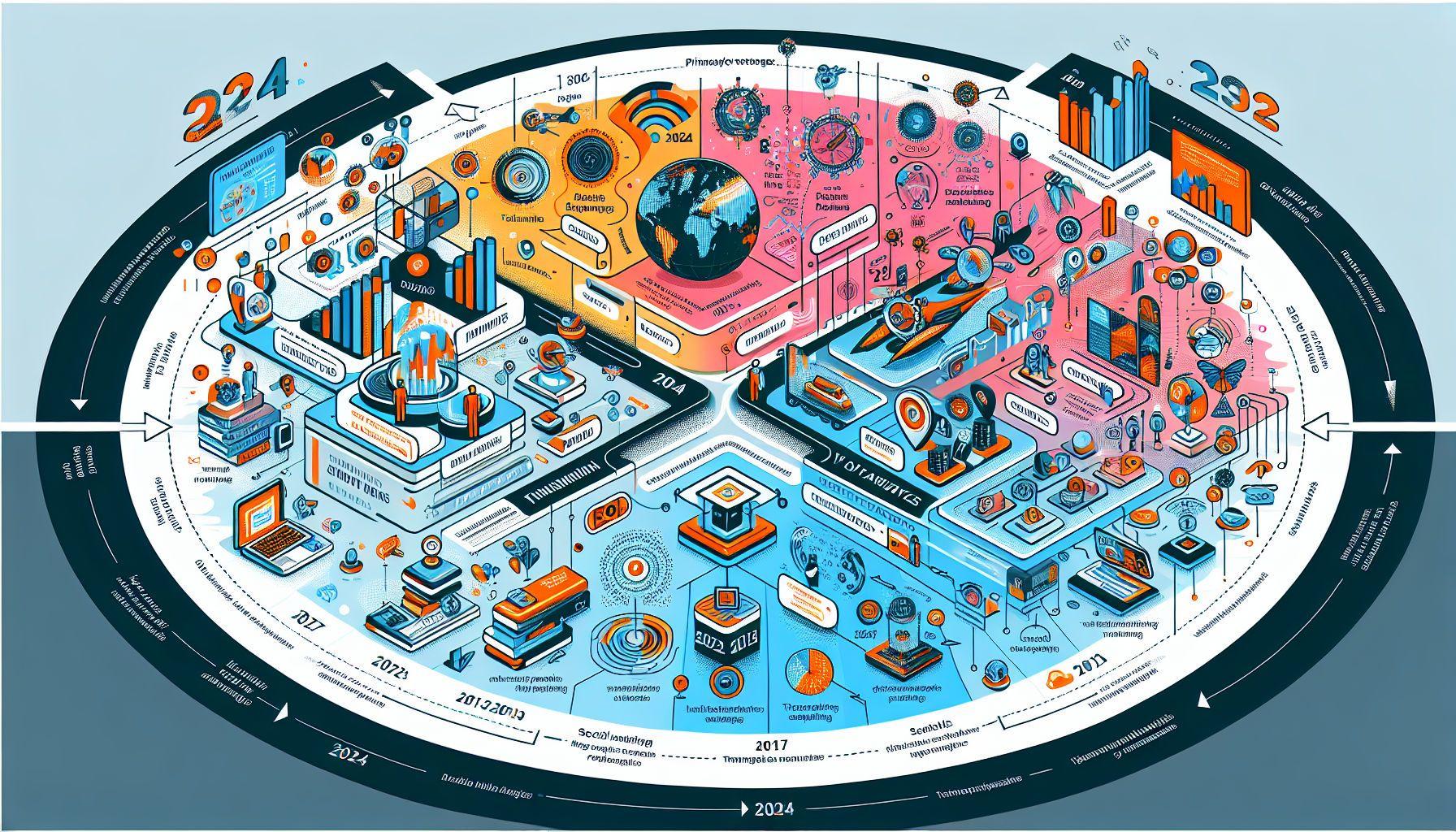Year in Review: Key Changes in Digital Marketing in 2024
November 5, 2024
•
7 minutes

Content
Every year, digital marketing continues to evolve, offering new opportunities for businesses while posing new challenges for professionals. 2024 was no exception. In this article, we’ll look at the main trends that have shaped the digital marketing landscape and influenced how companies attract and retain customers.
1. Integration of Artificial Intelligence
Artificial intelligence (AI) has become a key tool in digital marketing. It enables automation, big data analysis, and customer behavior prediction. In 2024, companies increasingly use AI to personalize content and advertising, making marketing campaigns more effective. For instance, AI-powered chatbots can respond to customer inquiries in real time, while recommendation algorithms help identify the most relevant products. These tools improve customer experience while reducing service costs.
2. Focus on Data Privacy
With growing user concerns about privacy, compliance with regulations like GDPR and CCPA has become essential. Consumers demand transparency about how their data is used, forcing businesses to rethink data collection and analytics strategies. Companies are implementing more advanced cookie consent mechanisms and shifting toward first-party data collection. This helps maintain customer trust while ensuring personalized experiences that comply with legal standards.
3. Visual Content and New Formats
As visual platforms like TikTok and Instagram grow in popularity, brands are investing more in high-quality video content and interactive formats such as AR and VR. Video has become the dominant form of audience engagement, capturing attention and boosting interaction. Businesses use live streams, short videos, and stories to deliver messages quickly. AR technologies allow users to “try on” products from home, while VR helps create virtual stores and showrooms, enhancing the customer experience.
4. Cross-Channel Integration
In 2024, cross-channel strategies have become a necessity. Brands are focused on creating unified, omnichannel customer journeys that connect offline and online experiences to strengthen loyalty. For example, retailers integrate mobile apps with physical stores, enabling users to scan products for more information or instant purchases. Social media, email, push notifications, and chatbots work together to build a cohesive brand presence and improve customer engagement across all touchpoints.
Modern consumers are paying increasing attention to the environmental and social impact of businesses. In 2024, companies that actively pursue sustainability and social responsibility are earning greater trust and appeal. Brands are developing strategies to reduce carbon footprints, use eco-friendly materials, and support social initiatives. Consumers are even willing to pay more for products from companies that embrace sustainable practices. For instance, fashion brands are introducing recycled materials into collections and organizing clothing recycling campaigns.
Conclusion
2024 brought major shifts to digital marketing, pushing companies to adapt and innovate. AI integration, data privacy, high-quality visual content, cross-channel strategies, and a focus on sustainability are helping brands attract and retain customers while ensuring loyalty and long-term success.
Keywords: digital marketing, artificial intelligence, data privacy, video content, AR and VR, cross-channel marketing, sustainability, social responsibility.
Recent posts








